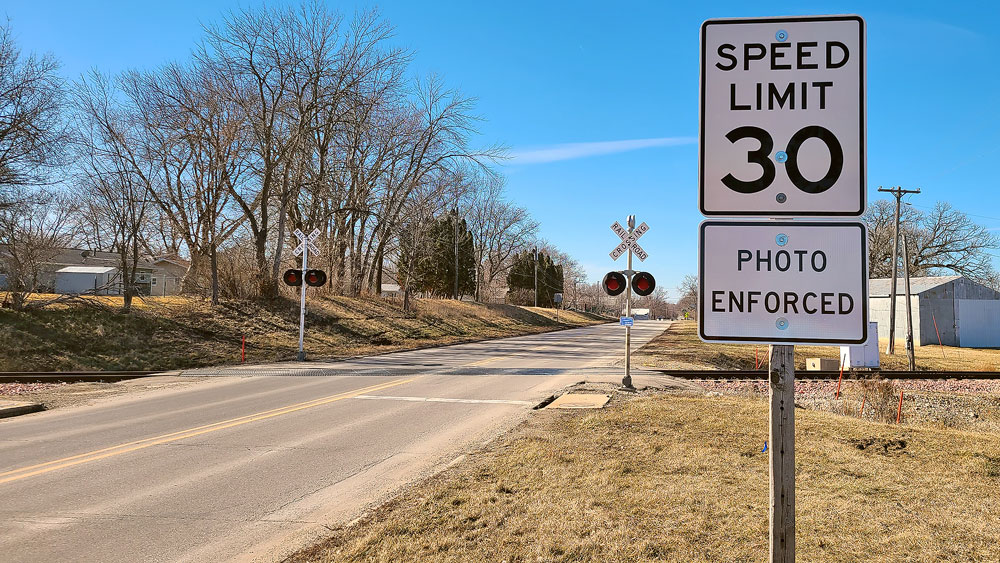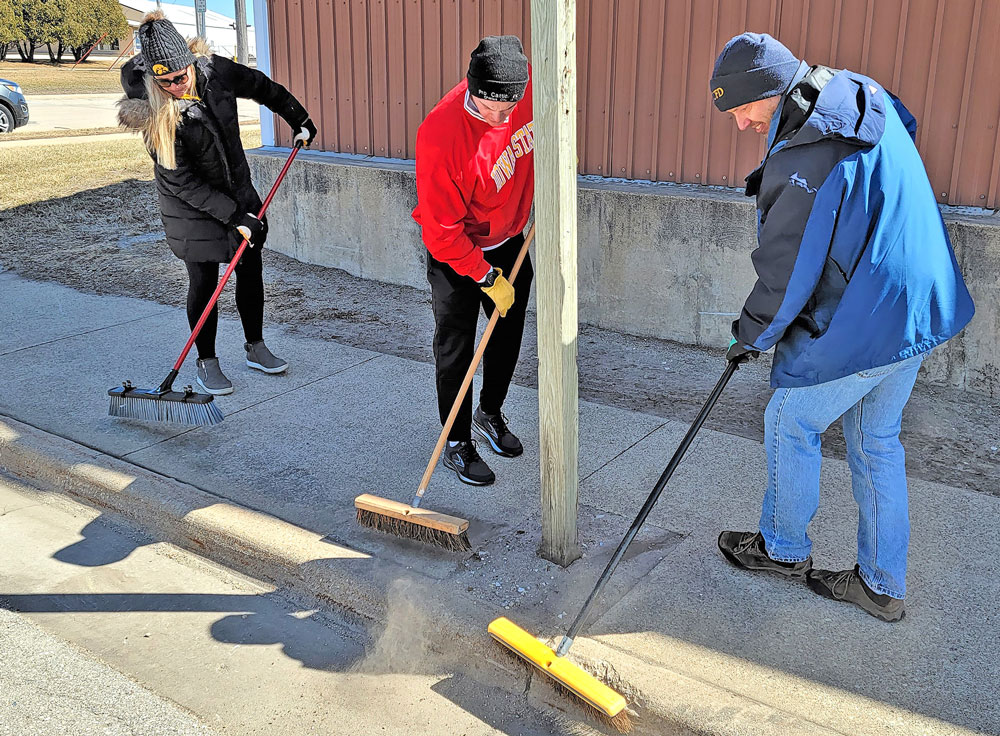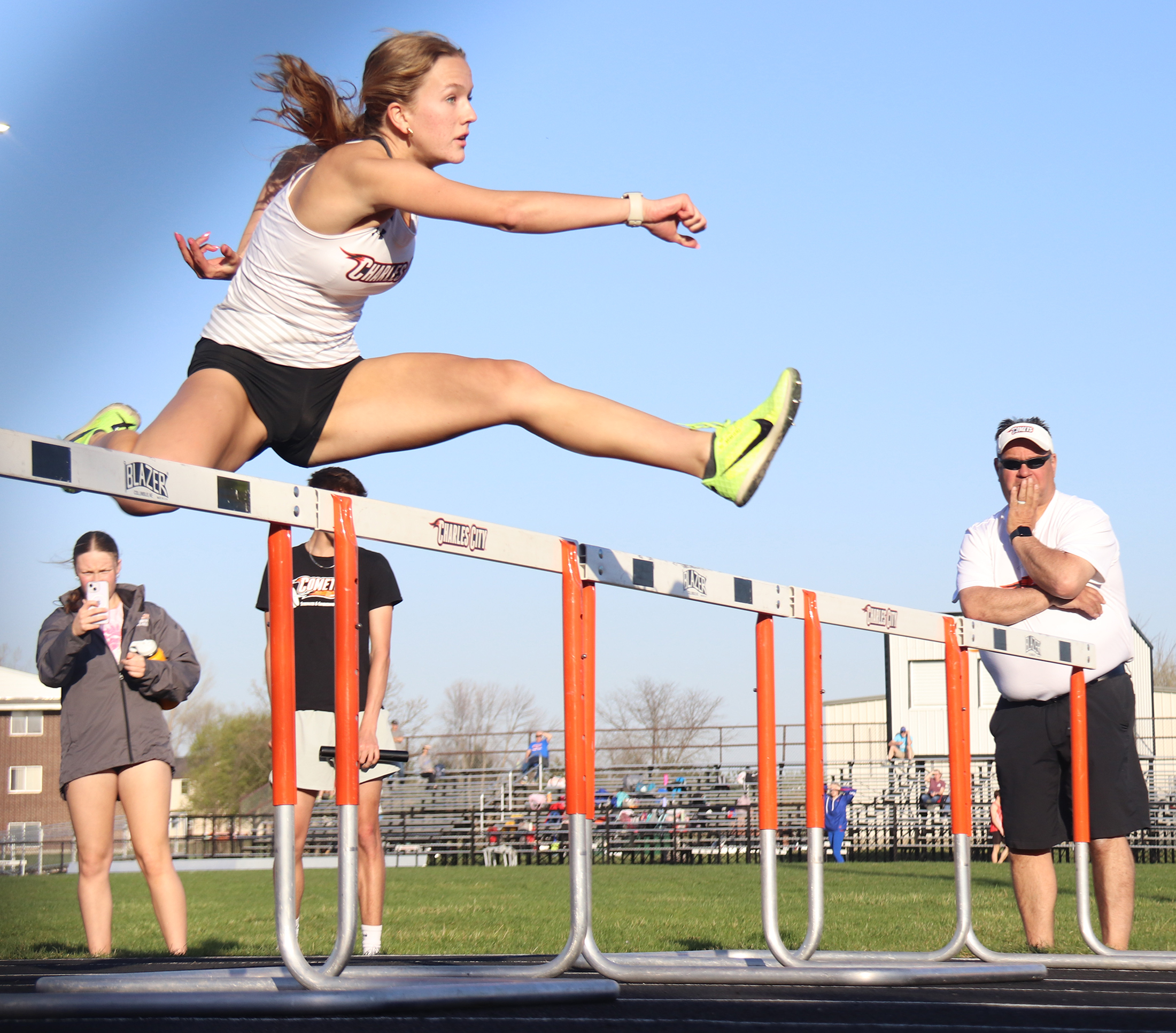Supervisors look for ways to reduce property tax rate increase
By Bob Steenson, bsteenson@charlescitypress.com
Floyd County supervisors revisited work on the the proposed fiscal year 2019-20 county budget Monday morning, looking for ways to trim what could be double-digit property tax rate increases.
After a board meeting last week, the supervisors had tentatively agreed on a budget that would have called for higher than 20 percent levy increases for city and rural property owners in Floyd County.
Under the proposal then, the rural levy would increase from the current $8.85 per $1,000 of assessed valuation to $10.68, almost a 21 percent increase.
The levy rate for owners of property in incorporated cities would increase from the current $5.45 per $1,000 to $6.89, an increase of 28 percent.
On Monday the supervisors talked about reducing the proposed rural levy by 15 cents and the proposed city levy by 5 cents per $1,000, meaning rural property owners would see a 19 percent increase in the levy rate and city property owners would see a 27 percent increase.
The results of those decisions would be lower carry-over balances in certain fund accounts at the end of the fiscal year.
The major areas identified as causing the spending increases are a new $250,000 in support for the Floyd County Medical Center, increases in costs for county employee health insurance, and increased costs in the Sheriff’s Office and Public Health, although some of the increase in those departments is also due to increased insurance costs, since those departments have the highest numbers of employees.
Supervisor Linda Tjaden said, “When you see everything totaled up, this is taxpayer money. We have an opportunity here … we’re spiking these numbers, and that concerns me.”
Tjaden suggested revisiting the county hospital support level or looking again at county employee wage increase rates, although no proposals were made to change them.
The supervisors will need to make decisions at their meeting this morning (Tuesday) because the proposed budget must be sent to be published this week and a date needs to be set for a public hearing on the budget proposal, likely March 12.
Also at the meeting Monday, the supervisors tentatively agreed to join other counties in urging the Iowa Legislature to clarify rules regarding absentee voting, after a contested race in the 2018 election in Winneshiek County threw the issue into question.
The Floyd County board agreed in principle to urge state action regarding the absentee ballot issue, but members did not agree on a specific proposal, other than to request that if the state requires certain action or equipment that the state also cover any cost to the counties.
Supervisors take no official action at workshop meetings. A proposed resolution on the absentee ballot issue is on the agenda for possible action at the regular Tuesday morning board meeting.
The Winneshiek County Board of Supervisors has proposed the Legislature set a hard deadline, that only absentee ballots received by the time polls close on election day would be counted.
Gloria Carr, who as Floyd County auditor is in charge of running elections in the county, said the Winneshiek proposal would be the clearest and easiest to implement, but she didn’t know if it would be politically viable.
Under current Iowa law, any absentee ballot mailed by the day before election day is to be counted if received by noon on the Monday following the election.
The problem is that the U.S. Postal Service no longer applies a postmark to all mail, meaning it can be difficult to prove when an absentee ballot was mailed. State law calls for a clear postmark or a certain kind of barcode on the ballot envelopes to determine when they were mailed.
Carr said the options include setting a hard deadline, like the Winneshiek board wants, allowing other kinds of postal barcodes to be considered official, or requiring all counties to use the barcode currently allowed under Iowa code.
The problem with using a Post Office-applied barcode is “there’s no guarantee they’ll put that barcode on every envelope,” Carr said. That would result in the same problems that are occurring with inconsistent postmarks.
If the county is required to send out absentee ballots with return envelopes that have unique barcodes on them, there will be a cost to the county, Carr said. Material distributed for the meeting Monday indicated the cost could be about two to three cents per envelope.
If the law is changed to allow the Postal Service-applied barcodes to be legal, that would require purchasing a device costing about $400 for the county to read those barcodes, Carr said.
Supervisor Roy Schwickerath said he was concerned about requiring all absentee ballots to be returned by election day. “Snowbirds” or others who might be away from the area on election day might have to mail their ballots a week or more before the election date to be reasonably sure they will arrive in time.
Some voters want to wait as late as possible to return their absentee ballots because they are still paying attention to what’s going on and because things can happen at the last minute that might cause them to change their minds who they support, he said.
“We’ve all run for office,” Schwickerath said. “You’re out there talking to people up until the last day. That’s the real thing.”
Supervisor Tjaden said she understands people wanting to wait as long as possible, to be sure of their decision, “but by doing so that’s a risk they take that they’re waiting too long, then all of a sudden it doesn’t really matter because their vote doesn’t get counted.”
Schwickerath said, “I still think there’s a solution better than what Winneshiek County had there. I agree the Legislature needs to do something. I hate to see us take a position that limits a voter’s ability to vote.”
Supervisor Chairman Doug Kamm said he thinks it’s more important that the county simply encourage the Legislature to address the problem, rather than back any particular solution.
“Make it black and white. Change something,” Kamm said, advocating for the Floyd County board to send its own letter to legislative leaders and to the governor rather than endorsing the Winneshiek County proposal.
He also said some of the responsibility lies with the voters. “Make an effort to make sure your vote gets there, plain and simple,” he said.
In the Winneshiek County election, Iowa House District 55 Republican Rep. Michael Bergan won re-election by nine votes over opponent Democrat Kayla Koether.
In that election there were 33 ballots that were received after election day, but that did not have Postal Service postmark dates stamped on them to indicate when they were mailed. They did have a barcode that had been printed on the envelopes by the U.S. Postal Service, but it isn’t the kind of barcode allowed under Iowa law.
After the results of the election were challenged in court, the Postal Service barcodes on the 33 envelopes were read and it was determined that 29 of them had been mailed before the deadline.
The judge in the case, however, determined that it is up to the Legislature, not the courts, to determine challenges to legislative seats. In January, the Iowa House voted 53-44 along party lines to not open and count the 29 ballots, affirming Bergan’s victory.
Carr said the idea that may get Legislative support is to require specific barcodes, called IMB, or “intelligent mail barcodes” be printed on each ballot return envelope that is sent out by county auditors’ offices.
“Recognize there’s a cost to the taxpayers to do that,” she said.
Carr said she was also concerned that some politicians have faulted the Winneshiek County auditor for not allowing the contested absentee ballots to be counted.
“This could cost him a career because he followed the rules that are out there,” she said. “We have legislators who are saying he should have done it anyway, and the code doesn’t allow for it.”
Carr did not mention any legislators by name.
Rep. Todd Prichard, D-Charles City, the House minority leader, was among those arguing that the contested ballots should be opened and counted because the Postal Service barcode proved they had been mailed on time, even if that barcode is not recognized under the current law.








Social Share